Power View is a feature of Microsoft Excel 2013 that enables interactive data exploration, visualization, and presentation encouraging intuitive ad-hoc reporting.
Create a Power View Sheet
Make sure Power View add-in is enabled in Excel 2013.
Step 1 − Click on the File menu and then Click on Options.
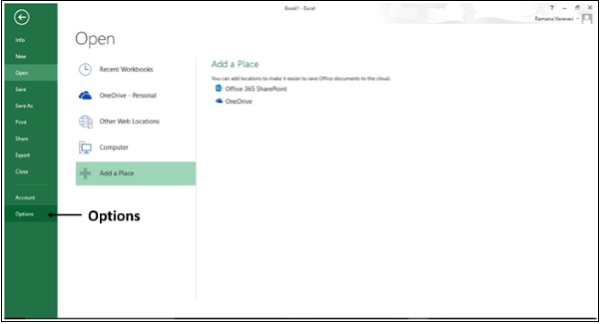
The Excel Options window appears.
Step 2 − Click on Add-Ins.
Step 3 − In the Manage box, click the drop-down arrow and select Excel Add-ins.
Step 4 − All the available Add-ins will be displayed. If Power View Add-in is enabled, it appears in Active Application Add-ins.
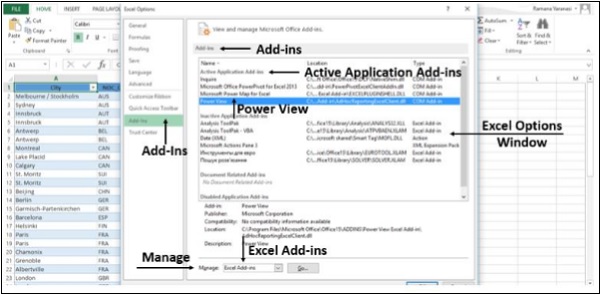
If it does not appear, follow these steps −
Step 1 − In the Excel Options Window, Click on Add-Ins.
Step 2 − In the Manage box, click the drop-down arrow and select COM Add-ins
Step 3 − Click on the Go button. A COM Add-Ins Dialog Box appears.
Step 4 − Check the Power View Check Box.
Step 5 − Click OK.
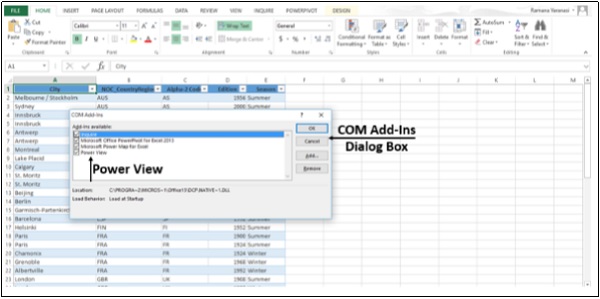
Now, you are ready to create the Power View sheet.
Step 1 − Click on the Data Table.
Step 2 − Click on Insert tab.
Step 3 − Click on Power View in Reports Group.
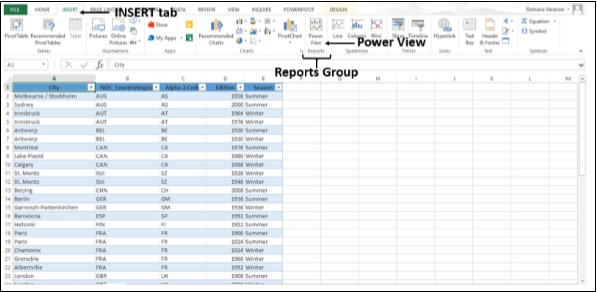
An Opening Power View window opens, showing the progress of Working on opening Power View sheet.
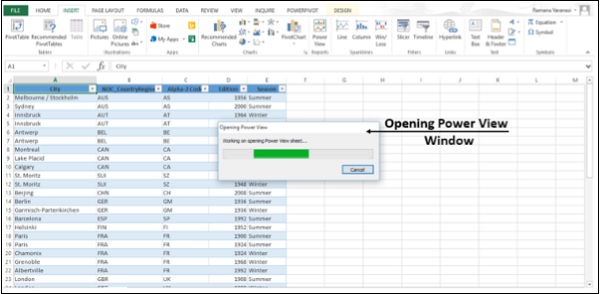
The Power View sheet is created for you and added to your Workbook with the Power View. On the Right-side of the Power View, you find the Power View Fields. Under the Power View Fields you will find Areas.
In the Ribbon, if you click on Design tab, you will find various Visualization options.
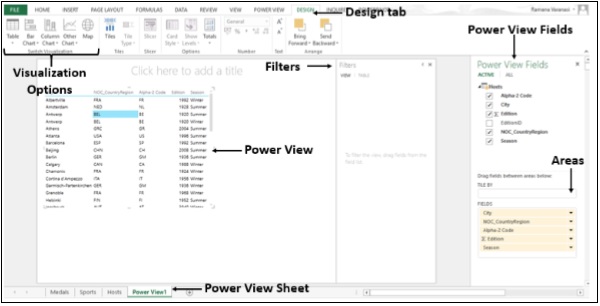
No comments:
Post a Comment